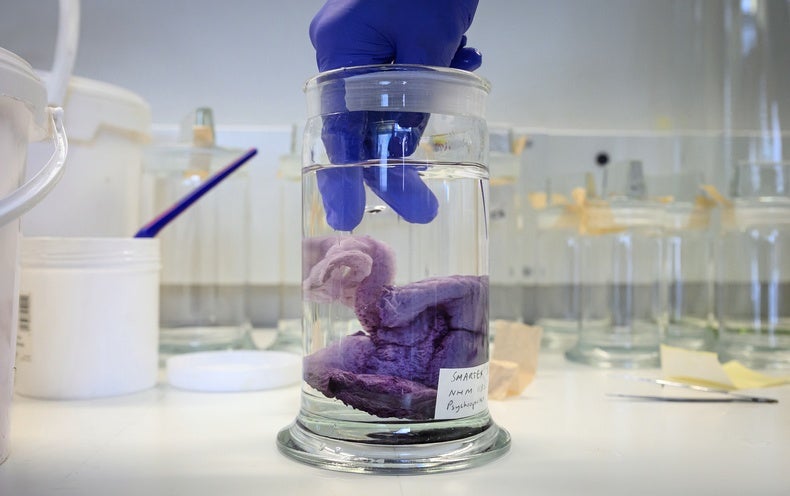CLIMATEWIRE | A huge, mineral-rich region of the Pacific Ocean known as the Clarion-Clipperton Zone is attracting major international interest because of its potential for deep-sea mining, including for minerals essential to renewable energy technology. But scientists warn that the risks to biodiversity may be higher than previously realized.
New research finds that the zone is home to thousands of different marine species — and the majority of them are new to science. What’s more, the region has been relatively understudied so far, meaning there are likely far more species yet to be discovered.
The new paper, published Thursday in the journal Current Biology, provides the first comprehensive “checklist” of species known to exist in the CCZ. The paper synthesizes more than 100,000 records drawn from previous research expeditions to the region over the years. It focuses specifically on benthic metazoans — multicellular animals living at the bottom of the ocean.
The study finds that a total of 5,580 species have been observed in the zone. Of these, 5,142 are new species that haven’t yet been formally named and described. Scientists know they exist, but they don’t otherwise know much about them.
Of the species known to scientists, the study finds that only six have been observed in other regions of the ocean.
And scientists are likely to keep discovering new species the more they study the region. There’s still a lot of sampling to do in the CCZ, the researchers noted in the study. And “species are accumulating rapidly with increasing samples,” they added.
The study raises new concerns about the potential consequences of deep-sea mining in the CCZ.
“‘We are on the eve of some of the largest deep sea mining operations potentially being approved,” study co-author Adrian Glover, a researcher at the Natural History Museum in London, said in a statement. “It is imperative that we work with the companies looking to mine these resources to ensure any such activity is done in a way that limits its impact upon the natural world.”
The CCZ spans about 2 million square miles of the Pacific Ocean between Hawaii and Mexico. It’s attracted international attention because of its high volume of mineral deposits. The seafloor is filled with small, rock-like, potato-sized “nodules” rich with minerals such as cobalt, manganese, nickel, copper and zinc.
An intergovernmental body known as the International Seabed Authority is responsible for designating the rules for mining and approving contracts in the CCZ. So far, the ISA has awarded 31 exploration contracts to countries and companies allowing them to assess potential mining opportunities in the region.
As of now, no actual deep-sea mining is taking place in the CCZ. The ISA will begin accepting mining applications this July, despite having not yet agreed on industry rules for mining in the region. But it’s still unclear when exactly mining may begin in the region or whether rules will be in place before that happens.
Proponents of deep-sea mining argue it’s an essential way to secure the minerals necessary for electric vehicle batteries and renewable energy technologies. Currently, these minerals are sourced mainly from terrestrial locations around the world, where they’re often tied to human rights abuses.
But the prospect of expanded deep-sea mining has raised alarms among activists and some of the ISA’s member nations, who are concerned about the potential harms for biodiversity and marine ecosystems.
The CCZ’s mineral-rich nodules rest on top of the seafloor, making them relatively easy to retrieve. But critics argue that using underwater vehicles to collect the nodules still can crush or disturb marine animals at the bottom of the ocean and raise plumes of sediments, potentially filled with toxic heavy metals, that may then spread through the water.
In 2021, hundreds of marine scientists and policy experts signed an open letter calling for a pause on deep-sea mining. In the same year, member states belonging to the International Union for Conservation of Nature, as well as environmentalists and other activists, voted in support for a moratorium on deep-sea mining.
Many scientists, activists and countries have urged caution until researchers better understand the implications for biodiversity in the deep sea, where marine ecosystems are often still poorly understood.
The new CCZ species checklist provides a “starting point” for these kinds of future studies, the researchers said in the study.
“Sound data and understanding are essential to shed light on this unique region and secure its future protection from human impacts,” they said.
Reprinted from E&E News with permission from POLITICO, LLC. Copyright 2023. E&E News provides essential news for energy and environment professionals.

